Civil detention in Russia is a common situation. Statistics say that up to 52% of criminals are detained by victims. About 40% are those who were caught by strangers. Finally, only slightly more than 8% are criminals detained by representatives of law enforcement agencies. Familiarity with the legal norms of the current legislation helps detainees to maintain their rights, and detainees - to relieve themselves of the burden of responsibility.
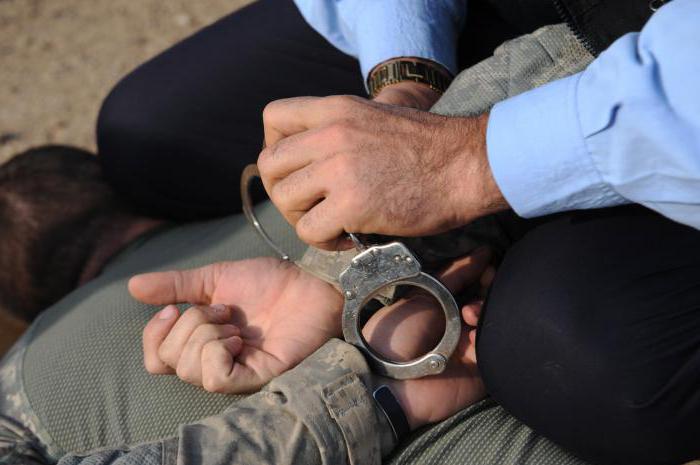
When can I delay?
Not every situation is correct from the point of view of legislation. Civil detention has the following restrictions:
- applicable to those who have committed a deliberate, dangerous crime for society and are trying to escape from the scene;
- performed upon commission of an unlawful act and immediately after it;
- absolute confidence on the part of the detainees that they are catching a real criminal.
You can say that there is no error if the following conditions are met:
- the offender is caught in violation of the law;
- there are eyewitnesses who can point to a person directly;
- clothing, appearance, a person’s home obviously prove that such is a criminal.
Important Features
Civil detention in Russia according to the applicable law can pursue one of two (both) goals:
- prevent new crimes;
- Deliver the offender to the police.
Reprisal against the one who committed the crime is unacceptable and illegal. Civil arrest in Russia should not lead to death. In some cases, the law allows harm to the criminal, but this is only possible in a situation where there are no alternative ways to prevent the escape.
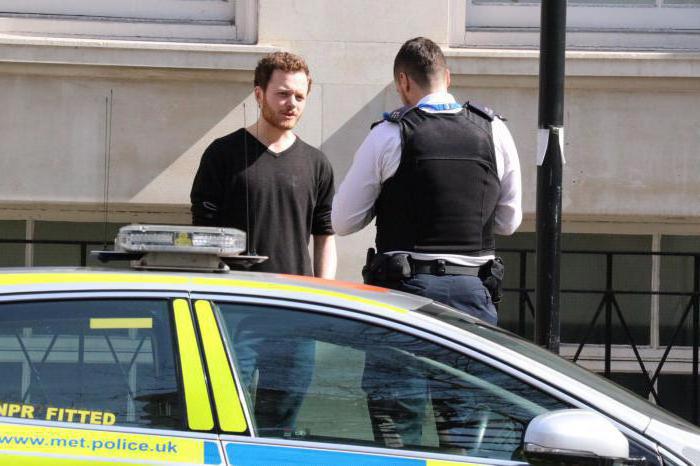
Unacceptable harm
This term is used when detention by a civilian is accompanied by damage that is not comparable with the gravity of the crime committed or other features of the situation. For example, if a person tried to commit a pickpocketing, which led to the loss of an insignificant amount, the victim, having caught the offender red-handed, should not cause him serious injuries.
It is also necessary to consider how actively the offender resists arrest. The law distinguishes between:
- resistance;
- disobedience;
- passivity.
In particular, if the offender refuses to go to the police, this is not considered resistance, but will be passive behavior. Civil law arrest is permissible if a person does not try to evade responsibility, but in such a situation bodily harm cannot be inflicted. The same applies to the case when there is evidence about the offender:
- location;
- personality.
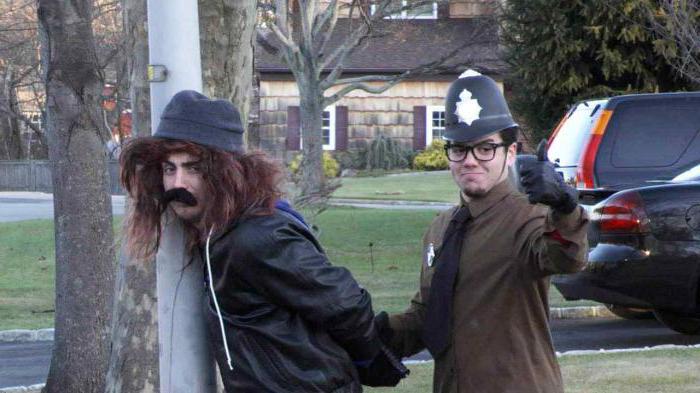
If it is known for certain that the detained person is a dangerous recidivist, then the harm caused to the criminal during detention can be quite serious. But if we are talking about who first committed the wrongful act, then civil arrest is allowed only mild. It is important to consider:
- gender characteristics;
- age;
- number of criminals.
Finally, the law considers a civil arrest in Russia as a situation in which it is permissible to harm a criminal if martial law or emergency is declared.
How not to break the law?
According to the current rules, during detention, it is necessary to strive to minimize harm to those who are trying to detain. In some cases, this is indispensable. But remember: if the court finds that the measures have been exceeded, then the detainee can be punished down to criminal liability.True, such extreme measures can only be in the case when the judge acknowledges the intentional nature of the damage.
Let us examine the example of a civil arrest (the Russian Federation is the country where the events are supposedly taking place). Suppose there was a criminal who attempted to steal some property. Since the scope of the crime was small, it was a theft. The offender was waiting for failure, the victims found him and rushed to catch. The criminal ran into the porch, where he was wounded by a pistol shot by one of the chase group. From the point of view of the law, the one who shot did an illegal act, since there was no need for such a measure. There are two reasons:
- the gravity of the crime committed is small;
- evasion of detention was already impossible.
In such a situation, the one who fired the shot will be found guilty by the court, causing serious damage to the victim (pickpocket).

Causing harm: how is it by law?
If a person has committed a crime, civilians participating in it often use violence during his arrest. Considers civil detention article 37 (as well as 38th). According to this legal act, the judge will evaluate how legitimate the damage was by analyzing the circumstances of the incident.
The most fully considers civil detention in Russia, article No. 38 of the Criminal Code. She says that when an offender is arrested, those who do this do a good thing for society, but only when they do it to bring the offender to the police and prevent future law violations. In this case, damage is considered in the framework of:
- detention order;
- measures of detention.
Detention measures
If the offender committed an unlawful act and tried to escape from the scene of the offense, an arrest with bodily harm is possible. This is allowed in a situation where the violator:
- threatens new crimes;
- armed;
- committed a dangerous crime.

As a rule, in this way they arrest:
- killers;
- robbers;
- rapists;
- thieves.
If the crime committed by a certain person is obviously socially dangerous, and this fact is beyond doubt, then an arrest accompanied by bodily harm is possible.
Do not harm based on:
- committing crimes by a person earlier;
- bad reputation;
- age
- intoxication.
Of course, these factors influence the situation, but are considered as additional. They must be taken into account, but it is unacceptable to evaluate them as the main ones. But if a person obviously shows that he does not allow arrest, if he threatens, tries to escape, then the damage is permissible. The judge checks whether such behavior took place, that is, whether it happened at the moment when civilians tried to detain the offender.
Implementation of detention: how not to break the law
Civil detention, accompanied by harm, is allowed if there is good reason to believe that some crime is a completely specific person. This issue is examined in detail in the Criminal Code in article number 91. Here are listed all the grounds on which civil detention is permissible. Above they have already been indicated.
The circumstances are closely related to the admissibility of causing harm to the criminal. According to the mentioned 91st article, real detention, since this refers to an extreme situation, is difficult for the detainee, which implies an incorrect assessment of the level of danger. This, in turn, leads to incorrect decisions.
A detention that is:
- timely;
- necessary.
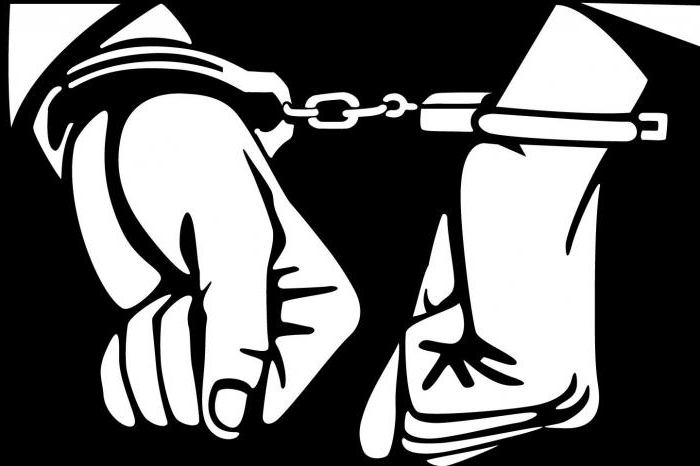
Detention: respecting human rights
What if civil detention applies to you personally? Correct behavior is possible if you know the law. In our country, the concept of “presumption of innocence” is relevant.This means that a person who is accused of something is innocent until he is officially proven back and announced in a court verdict. This is also stated in the Universal Declaration of Rights.
Even if a person committed an offense, this is not a reason to violate his rights. However, in practice, civilian detention may be tried to be organized in relation to those who did not do any unlawful actions.
How to behave with a policeman?
If a man in uniform comes up, there is no need to rush, fulfilling all his orders. First you need to clarify his name, position, as well as examine the certificate. Under the Charter, all law enforcement officials are required to provide information. While this data is not available, no questions need to be answered. Having recognized F. I. O., a position, having seen “Xivas”, write down all the data for yourself, if possible specifying the number of the token and the name of the department in which the representative of law and order serves. Practice shows that the probability of incorrect behavior on the part of law enforcement officers who have lost anonymity is much less. Such a person will be accurate, and the information received may be useful in the future.
If the PPP outfit turned to you, remember that such a route should be patrolled for it, and it does not have the right to leave it. For example, if a conflict situation arose, relatively speaking, at Chistye Prudy, and a worker from Medvedkovo turned to a citizen, then his demands are illegal.

Should I go with the cop?
In some cases, a law enforcement representative may ask a citizen to go to the station with him. In such a situation, it is first necessary to clarify for what reason this is happening, that is, what they suspect. Further, data on what is happening is urgently reported to friends, relatives, relatives. Do not forget to transfer the information received from the employee: his name, token number, position, address at which the event occurs, and also where to pick it up.
It was recommended that those in the department be calm, regularly send messages to their families, noting where they are contained. If a citizen who is under 18 years old is detained, he has the right to demand from law enforcement agencies to inform his relatives about his location. Usually, the police have a negative attitude to the announcement of the situation, so they can pick up the phone in the department. Try to report what is happening as soon as possible, and also ask friends to help you figure it out by learning:
- the estimated period of stay in the department;
- the reasons.
By law, they can be held within three hours. An exception is detention provoked by a crime for which you can be punished by administrative arrest. Here, the period of time can stretch for 48 hours.
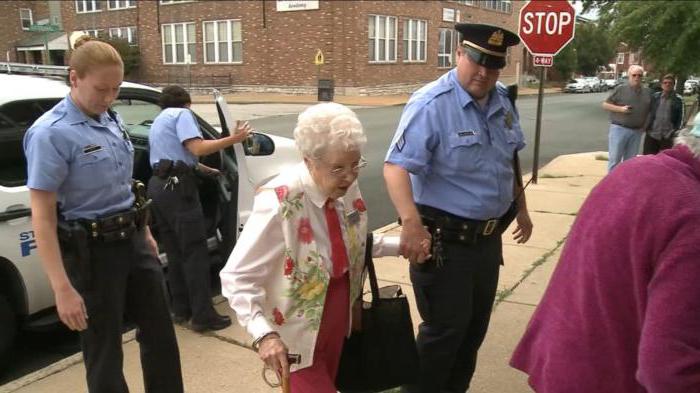
Civil detention: the practice of chop
By the nature of their activities, PSC employees have to deal with a similar situation quite often. This applies to security personnel. Forensic statistics knows many cases of detection and detention of persons who committed several serious crimes by employees of private structures.
Despite the fact that the “military glory” of private traders is good, there are situations when the actions of security guards are recognized as unlawful, or even completely open a case against a private security company, checking the qualifications of workers and the features of work.
Features of current laws
Having carefully read the articles 38 and 39 of the Criminal Code mentioned above, one can notice that they do not mention that every citizen has the authority to actually detain the criminal. The law only states that, subject to reasonable limits, a person will commit acts that are not regarded as unlawful.
The actual detention has grounds:
- special;
- common.
In one case we are talking about the detention of someone who has already committed a crime, another option is the detention of those for whom an administrative offense has been discovered.In addition, in some cases, it is possible to detain those who have not done anything criminal at all. At the same time, in a real trial in court, the assessment of the actions of the detainee will depend on the personal opinion of the judge and his interpretation of the laws, since the wording allows some variation.
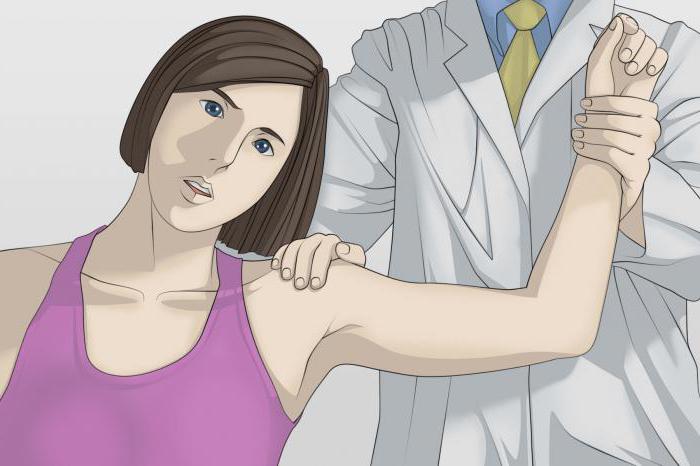
It is the 39th article that causes disagreement by the jurist that allows the arrest of one who has not committed anything illegal. What is this about? Consider an example: a criminal attacks a store with the purpose of robbery. The guard may block the exit to detain the offender, but at the same time restricts the freedom of movement of all those who were inside at that moment. Consequently, innocent people are also detained.
Special grounds for detention
These give some categories of citizens fairly broad rights, including detention. So, there is a law regulating the functioning of the private security company and other security structures that are not related to state authorities. The 12th article of this document states that a guard can detain and transfer to the police the one who encroached on health, life of citizens, property.
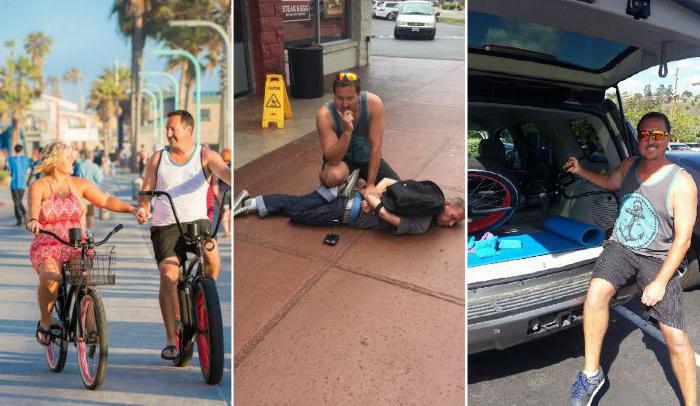
The specified permission is not an authority. The laws do not contain liability for the fact that a private person refused to comply with the requirements of a non-state security guard. In addition, according to the law, an employee of a private security company must immediately transfer a criminal to a police representative, but he does not have the opportunity to deliver him to law enforcement agencies - this is prohibited by law. Therefore, the only legitimate option is the detention of the offender and the subsequent call of law enforcement officers. Only they can pick up the criminal.